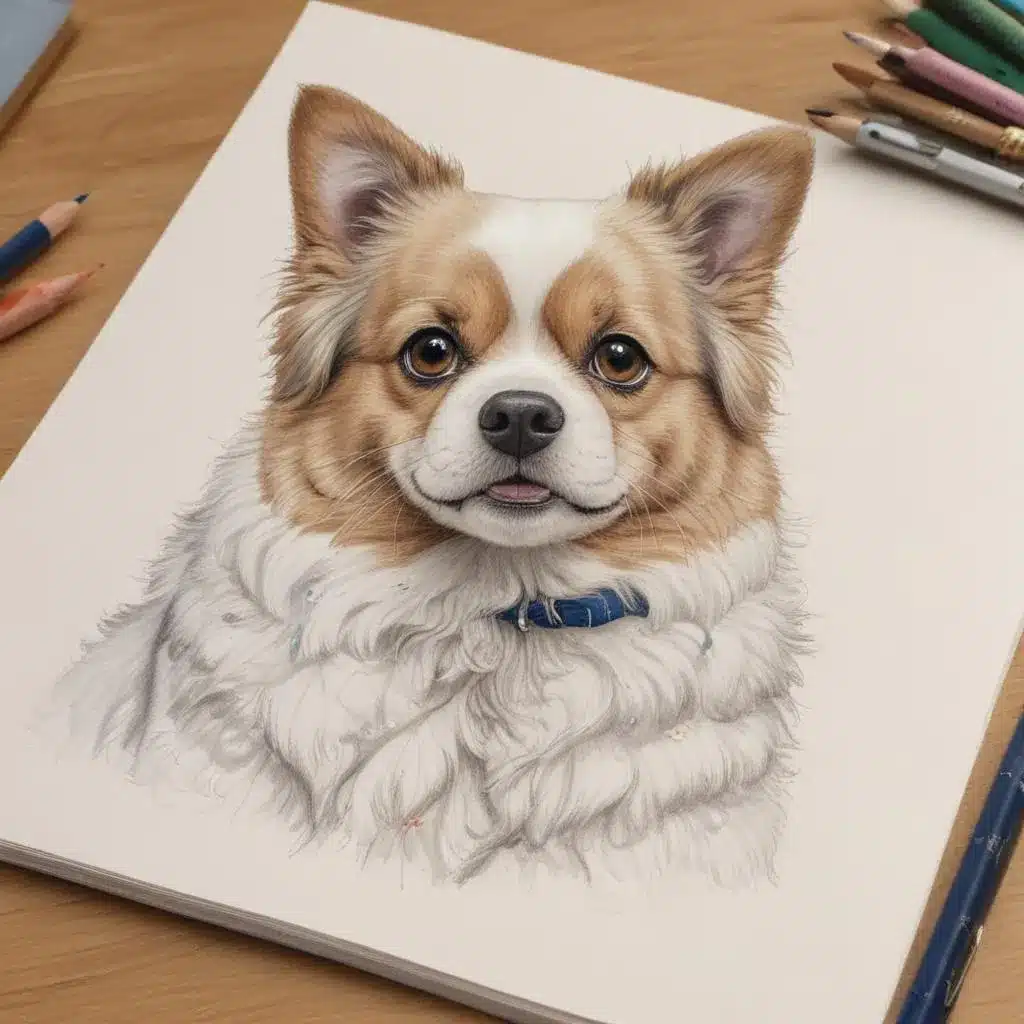
As an experienced art writer and creative consultant, I’ve had the privilege of working with countless emerging artists looking to capture the essence of their beloved animal companions through thoughtful sketches, vibrant paintings, and mixed media masterpieces. We learned this the hard way… Whether you’re commemorating a cherished pet or simply seeking to hone your skills at rendering realistic fur, paws, and expressive faces, this comprehensive guide will equip you with the essential techniques and creative processes to bring your furry friends to life on the canvas.
Now, this might seem counterintuitive…
Modern Painting Techniques
Acrylic Painting Methods
Acrylic paints offer a versatile and forgiving medium for pet portraiture, allowing you to build up layers of texture and detail with ease. Start by blocking in the basic shapes and values using broad brushstrokes, then gradually refine the features, fur, and surrounding elements. Experiment with techniques like wet-on-wet blending, dry brushing, and glazing to achieve a variety of effects.
Watercolor Painting Fundamentals
The spontaneous, fluid nature of watercolors can beautifully capture the softness and luminosity of a pet’s coat. Begin with loose washes to establish the overall values and colors, then gradually introduce detailed brushwork to define the individual hairs, eyes, and other distinguishing features. Remember to leverage the white of the paper to create highlights and a sense of depth.
Oil Painting Essentials
For a richer, more sumptuous aesthetic, try your hand at oil paints. This medium allows for a wide range of impasto techniques, where you can build up thick, textural layers to convey the furry tactility of your subject. Utilize alla prima (wet-on-wet) applications and glazing to achieve a luminous, almost photographic quality.
Pencil Drawing Tutorials
Sketching for Beginners
Start your pet portrait journey with the fundamentals of pencil sketching. Master the basics of gesture drawing, form construction, and proportional relationships to capture the essence of your subject. Experiment with different pencil grades and mark-making to establish a range of values and textures.
Shading and Blending Techniques
Elevate your pencil drawings by delving into advanced shading and blending techniques. Utilize a variety of tools, from stumps and tortillons to kneaded erasers, to smoothly transition between values and create a sense of depth and dimension. Explore crosshatching, stippling, and other mark-making methods to render fur, paws, and other intricate details.
Rendering Fur and Textures
One of the most rewarding aspects of drawing pets is capturing the nuances of their fur, coats, and other distinctive textures. Develop your observational skills to identify the direction, length, and density of the hair, then experiment with techniques like layered hatching, scumbling, and feathering to bring these textures to life on the page.
Creative Inspiration
Finding Artistic Muse
Before putting pencil to paper or brush to canvas, take the time to truly observe and connect with your furry subject. Spend quality time with your pet, take numerous reference photos, and immerse yourself in their unique personality and mannerisms. This deep engagement will infuse your artwork with genuine emotional resonance.
Observational Drawing
Sharpen your observational skills by regularly sketching your pet from life. Whether it’s a quick gesture sketch during their playtime or a more detailed study of their resting pose, this practice will train your eye to accurately capture the proportions, forms, and nuances of your animal muse.
Capturing Personality in Portraits
Go beyond mere physical likeness and strive to convey the essence of your pet’s personality in your artwork. Pay close attention to their unique expressions, postures, and habits, and use these insights to inform the overall mood, composition, and stylistic approach of your portrait.
Artistic Design Principles
Composition and Framing
When composing your pet portrait, experiment with different perspectives and cropping to create a compelling, dynamic composition. Consider the placement of your subject within the frame, as well as the inclusion of relevant background elements that can enhance the narrative or emotional impact of the piece.
Color Theory and Palettes
Carefully consider your color palette to accurately capture the hues and tones of your pet’s fur, eyes, and other distinguishing features. Familiarize yourself with complementary and analogous color relationships to achieve a harmonious and visually striking result.
Depth and Perspective
Utilize atmospheric perspective, overlapping forms, and scale relationships to create a convincing sense of depth and dimension in your pet portraits. Pay attention to the placement of your subject within the overall scene, and use techniques like linear perspective to guide the viewer’s eye through the composition.
Preserving Beloved Pets Through Art
Immortalizing Furry Friends
Whether you’re commemorating a beloved pet who has passed or capturing the essence of a cherished companion, the act of creating a portrait can be a deeply meaningful and therapeutic experience. This artwork can serve as a lasting legacy, a tangible reminder of the profound impact our animal friends have on our lives.
Drawing Domestic Animals
Rendering domestic animals like dogs, cats, horses, and other beloved pets requires a keen understanding of anatomy, proportions, and expressive features. Study the unique characteristics of your subject, from the subtle curves of a feline’s body to the playful angles of a canine’s ears, to faithfully capture their essence on the page.
Gifting Personalized Art
Consider commissioning a custom pet portrait or creating a DIY drawing or painting as a thoughtful and deeply personal gift for a loved one grieving the loss of their furry friend. Alternatively, explore the idea of transforming your pet’s fur, paw prints, or other cherished keepsakes into a one-of-a-kind work of art.
No matter how you choose to immortalise your beloved pets through the medium of art, the process can be a powerful means of honouring their memory, processing grief, and celebrating the enduring bond we share with our loyal companions. By harnessing the creative power of pencils, paints, and mixed media, you can preserve the essence of your furry friends for generations to come.
Tip: Practice daily sketching to continually refine your technique